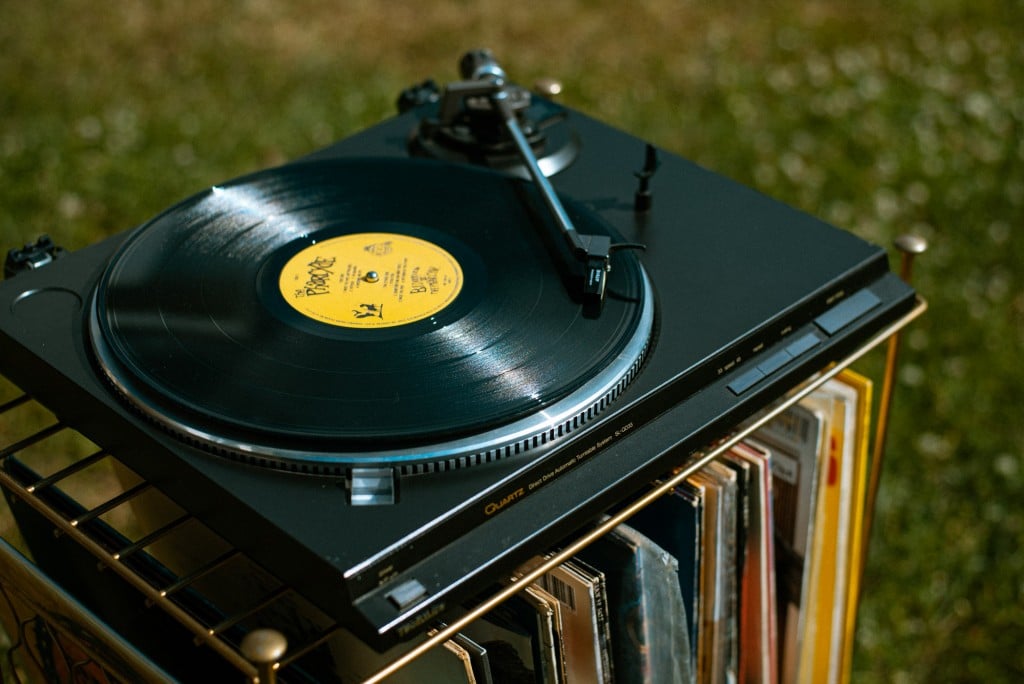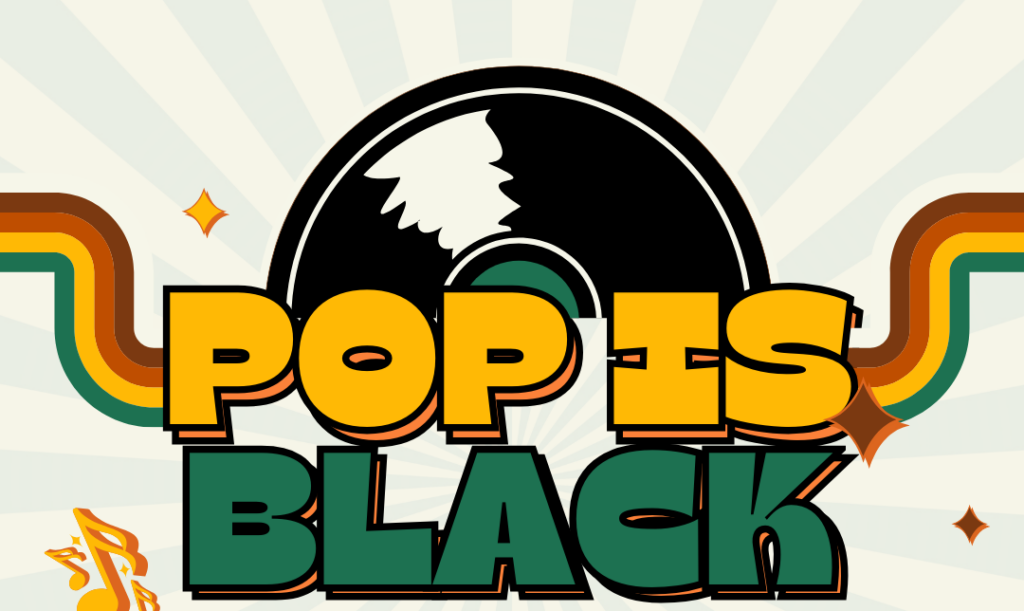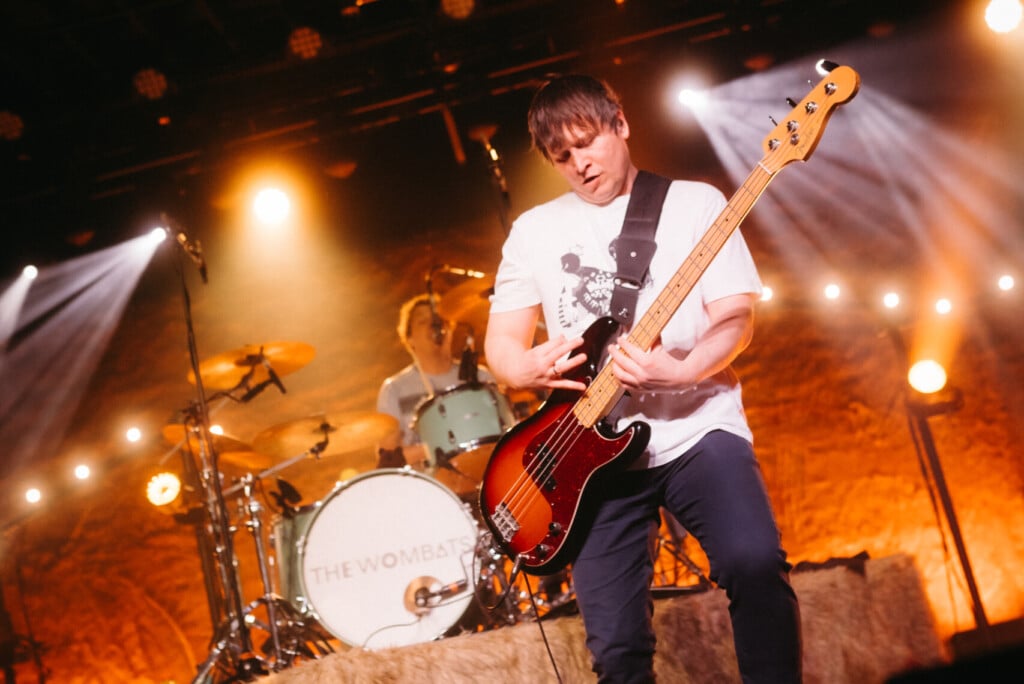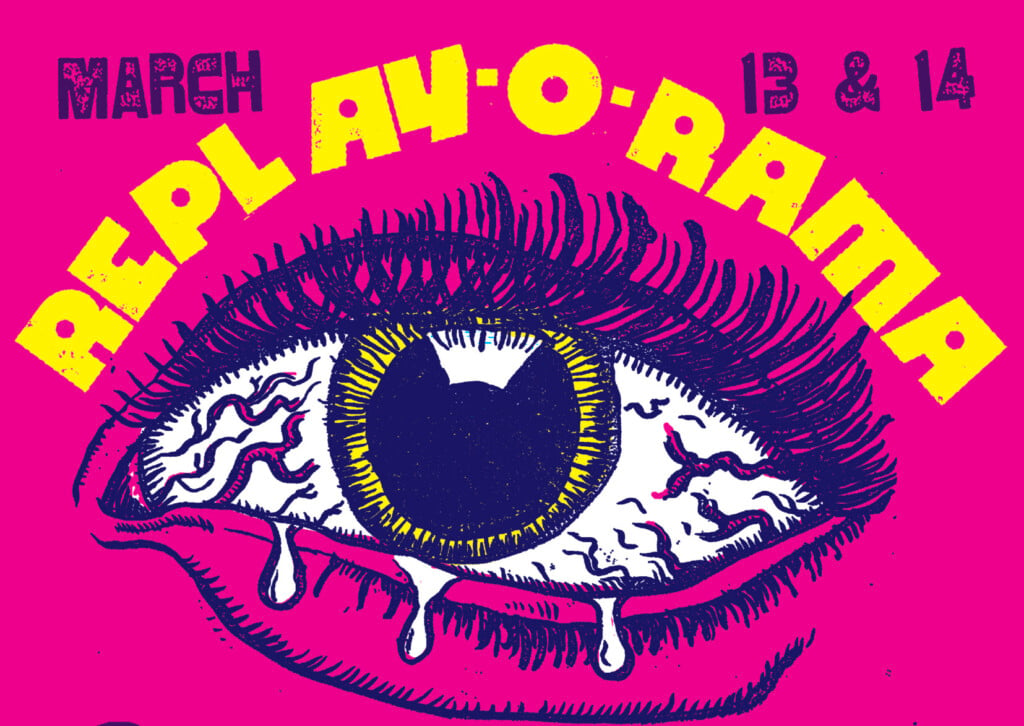Wak Party
The Wakarusa Music and Camping Festival is a Gemini of an enterprise, with two distinct sides to its personality: anarchy and government.
The June event happens to occur under the astrological sign of Gemini, the twins, which denotes contradiction, changeability, two-sidedness. Here at Clinton Lake State Park, near Lawrence, such dichotomy is evident. Thousands of modern-day flower children spin across an expanse of grass and gravel that somehow, seemingly miraculously, is clear of empty beer cups. Imagine a herd of smiling hippies on a carefully maintained golf course.
The music, though, isn’t just for hippies. There are more than 100 acts on six stages over four days. Though the lineup walks on the folk side, Widespread Panic, Les Claypool, Yonder Mountain String Band and one performance of Jesus Christ Superstar make for adventure. A stroll across the vast grounds takes you through a universe of sounds from across the country.
It’s Friday evening, the second official day of the festival but the first burst of real energy. The sun, which has shone perfectly all day, heads toward the horizon. From the Revival Tent, an enormous white structure that recalls Denver International Airport or peaks of meringue, come the buzzes of Galactica. The jam band surprises the crowd, which smells of dirt and weed, with an emphatic metal breakdown, and even the pacifists take a moment to rock violently.
On the other side of a memorial for Split Lip Rayfield’s recently deceased Kirk Rundstrom, the Led Zeppelin-recalling Brooklyn trio Earl Greyhound hipsters about the Campground Stage. Lawrence’s own reggae masters Ras Neville & the Kingstonians bounce on the Homegrown Stage. And Minneapolis alt-poppers Nu Funk Mafia reach out to a smattering of fans at what is humbly known as the Porch.
But the masses are over at the main Sundown Stage, perhaps staking out spots for the pending arrival of Ben Harper, but in the meantime getting lost in Los Angeles band Ozomatli. The nine-piece, seriously multiethnic (Hispanic, black, white, Asian) act pulls salsa, jazz and hip-hop into one show, sending the large crowd into various incarnations of dance: a swinging of the hips, then a cool sway, then a thugged-out head bob.
As the hip-hop beat morphs into something approaching reggae, dreadlocked singer Jabu Smith-Freeman shouts, “Let’s give a message to George W. Bush!” and thrusts up a middle finger. A sea of middle fingers arises over deafening cheers.
Wakarusagoers, as one might imagine, do not care for G-Dub. Signs and flags across the campgrounds are anti-war and pro-weed. Socially conscious booths mix among food vendors to collect canned goods for the Lawrence poor and cash for Hurricane Katrina victims.
These are the people who, last year, were outraged by an omnipresent police force that snooped through tents and arrested more than 80 people from 28 states on drug and alcohol violations. They cursed the Kansas Highway Patrol checkpoints. Some pledged they would never return to red-state Kansas, where not even a peace-loving music fest could escape fascist foot soldiers.
But it’s a different vibe this year, man. Organizers have made good on their promise to deliver a kinder, gentler, more respectful security force, with no obtrusive surveillance and no highway checkpoints. (In all, just 14 arrests will be made.) And as police have laid off, festival staffers have clamped down with their own rules: They’ve released their first-ever safety and operations manual and commissioned festival veterans to roam the grounds with transmitters linked to promoters, media, civil rights personnel, medical providers and law enforcement. The festival booklet includes a greeting note from Gov. Kathleen Sebelius promising fun, security and places to spend money.
What began as a grass-roots celebration in 2004 has evolved into a well-oiled event, wild but under control. This year, attendance is down — 12,000 as opposed to last year’s 15,000 — but the consensus is that the missing 3,000 are last year’s riff-raff, unwilling to tame their debauchery or face certain incarceration in the Douglas County clink.
Those who remain fall into two broad categories: neohippies and nonhippies.
Standing a few feet from a sullen, topless woman with painted breasts, a clean-cut K-State alum posits that this year’s triumph is due not just to a change in operations but also to a change in clientele. He spits tobacco and surveys the grounds from near the Revival Tent, commenting on the lack of trash strewn about — not a single plastic cup or paper plate can be spotted from this vantage point on the large swatch of world-cuisine vendors, hula-hoop stands, information booths and performance areas.
“I hate to say it, but there’s a better class of hippies this year,” he says.
His friend, a metalhead in a black T-shirt, replies, “Well, they care about the environment. They must be making a real effort to pick up after themselves. I guess hippies are good for something.”
Environmentalism has enormous buzz this year with Wakarusa’s first Sustainability Symposium, an effort to promote the festival’s green focus. This year, the festival amps up recycling, requiring vendors to use compostable products and run generators on biodiesel. Better water distribution limits bottled-water consumption. Panels of experts on coal and wind energy assemble to educate attendees. Every drop of beer in the 618 kegs that will have been tapped by festival’s end comes from wind-powered New Belgium Brewing Company in Fort Collins, Colorado
Reducing Wakarusa’s carbon footprint means more responsibility asked of festivarians, who presumably haven’t come to Wakarusa to be responsible. They oblige nonetheless, and never has a festival trod so gently on Mother Earth.
The kind Wakarusa brethren do become a bit frenzied, however, as Ozomatli wraps up and Ben Harper’s roadies get to work. Children twirl glow sticks, creating flames of neon against the dark sky. Substance enthusiasts shake their heads, coming into their new realities. Yuppies calmly sip beer, looking toward the stage and saying little.
Ben Harper walks onto the stage without pretense, and the crowd erupts for the awkward, mainstream representative of folk music, a genre for which mainstream success is somewhat antithetical.
YouTube: Ben Harper jamming at Wakarusa 2007 (fan footage)
But Harper sits down with a slide-guitar on his lap and leads the people, who know the words to all the songs, though words often are few and far between during jam-heavy Harper shows.
Over at the Homegrown Stage, folk takes a purer shape in the form of Alice Schneider, a KU alum and New York City Native who fronts Alice Texas. Her album, Sad Days, is tinged in country and belies her undergraduate days in Kansas. She evokes long, straight highways with “Love Is All Around,” a ballad produced by Nick Cave drummer Jim Sclavunos.
Bad Seed participation makes sense — Schneider’s songs are melancholy and dangerous and sewn of haunting stories. She delivers them to a crowd of fans who don’t mind missing the big headliner for a chance to hear something this raw. They are many ages and colors; some wear flowing skirts, and others wear Old Navy sweatshirts in the cool night.
They are neohippies and nonhippies, intertwined.




